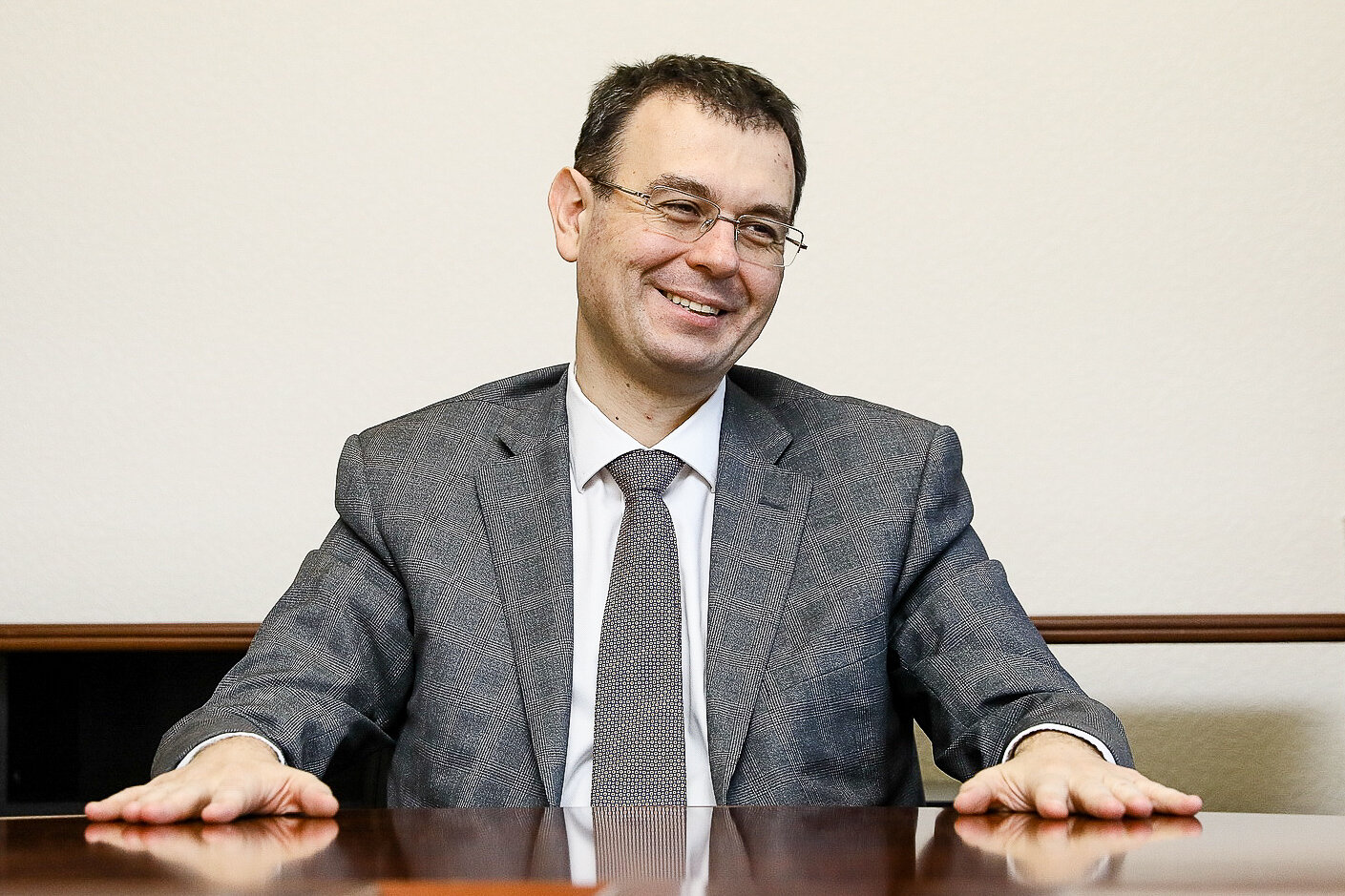Ukraine’s underground economy remains immense, with up to 60% of the individuals and businesses dodging taxes, according to estimates of one of the country’s leading tax experts.
Danylo Getmantsev, 42, head of the Verkhovna Rada committee on finance, taxation and customs, aims to fight it with new laws.
Getmantsev’s plan is to make it harder to evade taxes and to make it easier to work legally.
Two most important laws for bringing his vision to life have recently come into force: the law on making cash registers mandatory for more types of businesses and the base erosion and profit shifting (BEPS) law that fights tax evasion through offshores.
Cash registers
After the government introduced the law on mandatory cash registers, many individual entrepreneurs took it to the streets to protest.
For small businesses, the law means they need to hire accountants to compile complex tax reports, something many oppose.
Getmantsev, however, thinks it’s a mandatory measure that had to be imposed even before the pandemic. The law will bring more payment transactions to light and therefore increase tax revenues to the state and local budgets.
Many European countries, including Croatia, Slovenia and Hungary, introduced mandatory cash registers a long time ago. Getmantsev adds that even less wealthy countries like Kazakhstan and Russia have already obliged businesses to use cash registers.
“I think we should always be honest,” Getmantsev says.
“We shouldn’t suffer from schizophrenia,” he went on. “On the one hand, we want normal roads from the state, and on the other hand, we don’t want to pay taxes.”
After the mass protests, the government backed down on its plans and put off fiscalization for one year. As of now, only businesses in several spheres, which have high risks of tax evasion — commercial medicine, sale of jewelry and tech equipment — have been obliged to use cash registers.
Individual entrepreneurs who earn over Hr 1.3 million a year have to report about their cash flow, as well.
The introduction of cash registers for risky businesses can bring Hr 5 billion into the state budget, Getmantsev believes. At the same time, the government expects to get at least a threefold rise in direct taxes after the full-fledged launch.
The state budget can receive even much more revenue if it ramps up its fight against smugglers. According to CASE Ukraine, a public organization specialized in economics, the state loses from Hr 55–81 billion because of smuggling.
Combating profit shifting
The amount money tax authorities want to earn through fiscalization, however, may pale in comparison with how much money the state can bring to the coffers through fighting large-scale tax evasion.
The BEPS law, which Getmantsev initiated and wrote, apart from introducing other norms, will make Ukrainian enterprises registered in offshore zones to pay taxes at home. This can bring Ukraine millions of dollars a year.

Danylo Getmantsev, head of the Verkhovna Rada committee on finance, taxation and customs, speaks with the Kyiv Post in his office in Kyiv on Jan. 21, 2021. (Oleg Petrasiuk)
Since Ukraine’s independence year, 1991, the country has lost estimated $162 billion through offshores. BEPS practices cost countries $100-240 billion in lost revenue annually, according to the Organisation for Economic Co-operation and Development.
Besides, passing the law, which was dubbed “anti-offshore,” was one of the requirements for getting a new tranche from the International Monetary Fund.
The European Business Association, the American Chamber of Commerce and the Union of Ukrainian Entrepreneurs, however, spoke against the law. Businesspeople were concerned that they now have to report “business purpose” of their operations every time they have business with non-residents.
Results for later
Although Getmantsev can’t boast immediate results, he believes the laws adopted in 2019-2020 years will show what they are worth this year, bringing more revenue to the budget, which in 2020 collected Hr 851 billion in taxes.
“2020 is not a year of de-shadowing results,” he says.
Getmantsev feels certain that Ukraine doesn’t need a comprehensive tax reform. According to him, the government should change only several things, including to simplify income taxation and change ecology tax.
Getmantsev expects the government to pass a law, combining personal income tax, social tax and military levy to simplify tax administration. Moreover, Getmantsev hopes the government will reduce the effective tax rate — the actual percent of the income that a person pays in taxes — from 34% to 30%.
The ecological tax should be amended to stop taxing local emissions and, instead, turn taxes into fines for polluting the environment. “If the company exceeds norms, it pays a fine,” Getmantsev says.
“We have a normal tax system,” Getmantsev says. “We have questions about its functioning in reality.”
